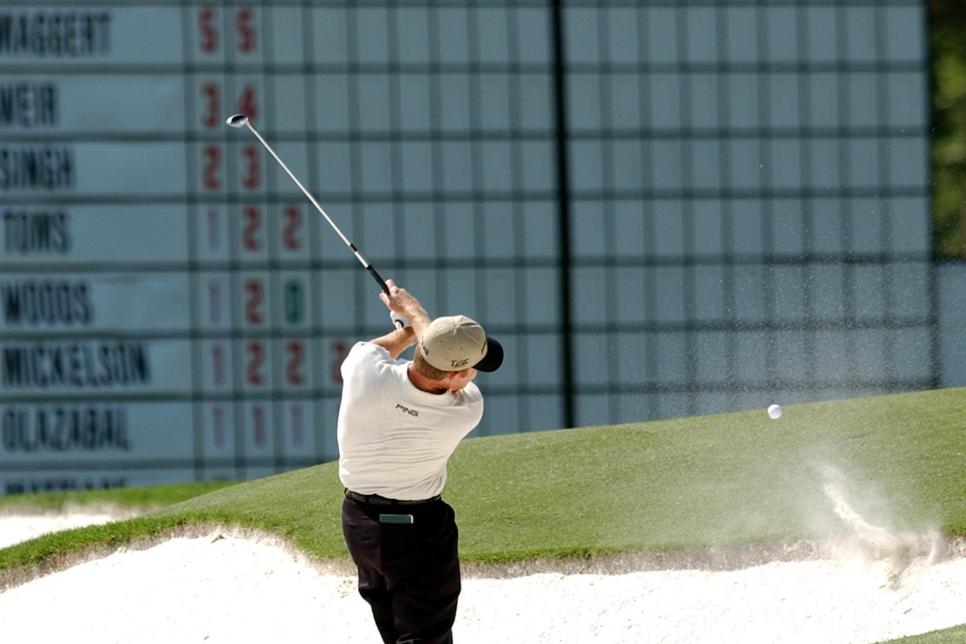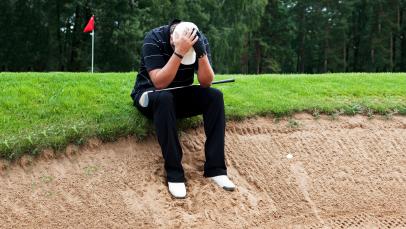Rules of Golf
Rules of Golf Review: I hit myself with my own ball. Embarrassment aside, is that a penalty?

David Cannon
We're not mentioning any names, but just know that a member of the Golf Digest staff once hit a 4-iron shot that struck an exposed tree root and rebounded at near terminal velocity into said golfer's forehead. Amazingly, the golfer stayed upright. Even finished the round. But since this happened at the turn of the century, the result from a Rules of Golf standpoint was much different than it is now.
Before the major rules changes from the USGA and R&A in 2019, hitting yourself was in violation of old Rule 19-2 and came with one-stroke penalty. Even worse, it was a two-stroke penalty in 2003 when Jeff Maggert (below) infamously hit a bunker shot that caromed off the lip and bounced into his chest in one of the most disasterous rules incidents in Masters history.

Stan Honda/AFP/Getty Images
Now, according to Rule 11.1, there is no penalty if you accidentally hit yourself with your shot. Furthermore, there is no penalty if you hit your equipment, your caddie, your opponent, your opponent's equipment, etc. In most cases, you just play the ball as it now lies.
Indeed, Kramer Hickok can be grateful his major bunker backlash came at the 2022 PGA Championship at Southern Hills, when there was no penalty for what happened here in the third round, and he then went on to make a nifty hole out.
The major exception to all of this is when you hit a putt on the putting green and it strikes another ball on the green. That's a two-stroke penalty. Obviously, it's also a penalty if you deliberately stop a moving ball (see Rule 11.2).
If you're wondering why the governing bodies softened their stance on getting accidentally struck by a ball, this is the explanation they gave in 2019:
"Many objects, persons and animals are present on a golf course during play; it is inevitable that a ball in motion will sometimes hit them before coming to rest, and a player is generally required to accept the outcome (whether good or bad). Just as there is no penalty in stroke play if one player (or his or her equipment or caddie) accidentally deflects another player’s ball, there is no need for a penalty when a player (or the player’s equipment or caddie) accidentally deflects his or her own ball. The outcome in such cases is random and unpredictable, and it results in a disadvantage for the player at least as often as it results in an advantage."


